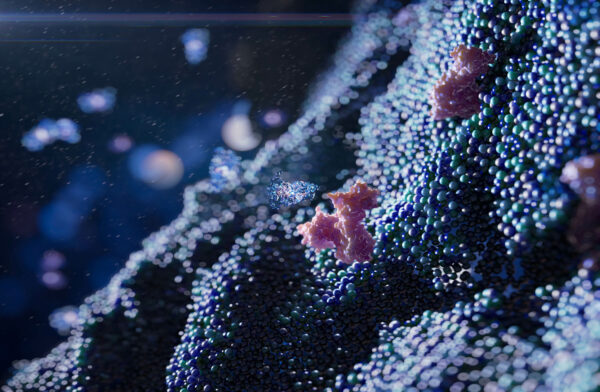
T cells, a frontline element in our bodies’ defense against pathogenic invaders, rely on the T cell receptor (TCR) to recognize enemies. This cell surface protein is pivotal in triggering an immune response, and crucial for us to become deeply familiar with if we are to aid the fight against infections and cancers. However, understanding the mechanical forces involved in such molecular interactions is a difficult challenge. Recently completed research describes DNA tension probes capable of storing mechanical information, shedding light on the transient forces encountered by T cells during antigen recognition. This innovative approach not only promises to unravel mechanical intricacies of the T cell receptor (TCR) but also explores the mechanical interplay with the programmed cell death receptor 1 (PD1), a crucial checkpoint in immune function.
To carry out their function, T cells must recognize antigen molecules on target cells, a process involving the transmission of weak, infrequent, and short-lived forces. Conventional techniques face challenges in studying such transient mechanical events. The article introduces a solution by developing molecular probes that store mechanical information, enabling the mapping of piconewton forces in real-time.
The study introduces a novel mechanoselection strategy, utilizing DNA tension probes designed as reversible digital switches. These probes, anchored to surfaces, unfold and refold in response to forces applied by cell receptors and by special oligonucleotides. The mechanical force data is stored using locking oligonucleotides. Unlocking oligonucleotides reset the probes to the real-time state, erasing the stored mechanical information. This dynamic mechanical information storage approach is demonstrated with OT-1 T cells, revealing the mechanical sampling dynamics of TCRs when encountering antigens with single amino acid mutations.
The study showcases the versatility of the mechanical information storage strategy by mapping TCR forces in both static and migratory T cells. Tension maps reveal how T cells mechanically sample antigenic peptides, providing insights into the potency of different antigens. The approach allows for multiple cycles of storing and erasing TCR forces, enabling a deeper understanding of the mechanical dynamics.
In addition to TCR forces, the study extends the application of the mechanical information storage strategy to investigate programmed cell death receptor 1 (PD1). The results indicate that T cells transmit forces through PD1, offering a new perspective on the mechanical aspects of this critical immune checkpoint pathway. The approach provides a clearer understanding of how mechanical forces may influence PD1 signaling and, consequently, T cell activity.
While tension probes have been in use for some time, this strategy overcomes previous limitations in mapping weak and transient mechanical events. The insights gained from studying TCR and PD1-associated forces open avenues for further research into the mechanical intricacies of immune responses, with potential implications for cancer immunotherapy and antiviral defenses.
Reference
Rong Ma, Anna V. Kellner, Victor Pui-Yan Ma, et al. (2019). DNA probes that store mechanical information reveal transient piconewton forces applied by T cells. Proceedings of the National Academy of Sciences (PNAS), Vol. 116, No. 34.
